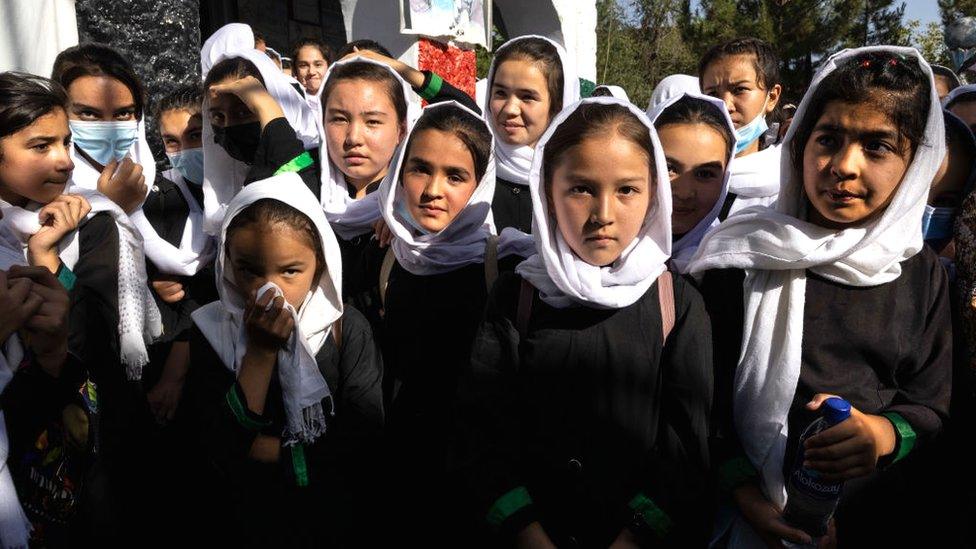UN promises help after Afghanistan earthquake
- Published
- comments
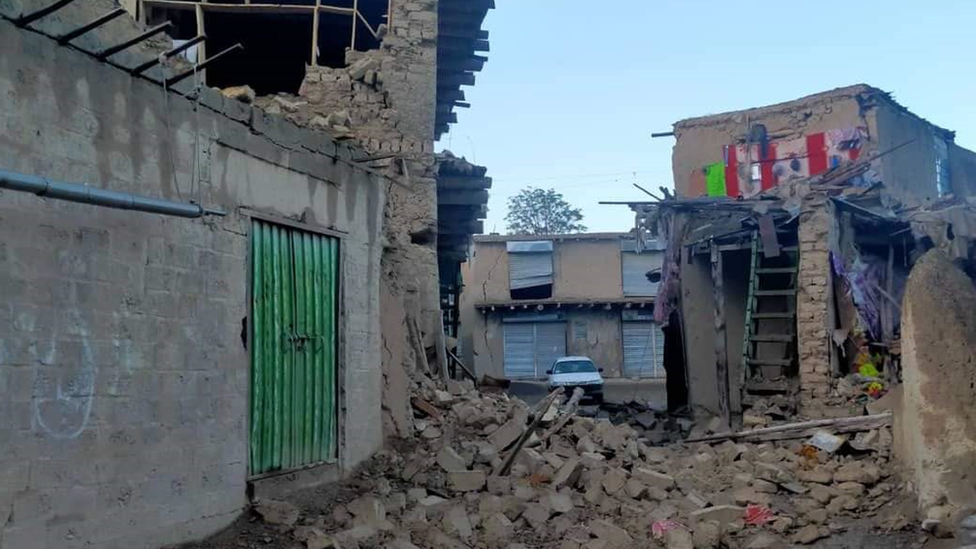
Pictures from Paktika province show extensive destruction to buildings
The UN has promised to help after powerful earthquake has hit Afghanistan overnight leading to landslides and ruined homes.
The magnitude 6.1 quake hit the mountainous country during the early hours as many people slept.
A local official has told the BBC that more than 1,000 people have died and another 1500 are hurt - rescue teams are trying to find people who need their help.
A tweet from the UN Secretary General's Deputy Special Representative for Afghanistan said: "Our condolences to the families of deceased, response is on it's way."
It's the worst earthquake to hit Afghanistan in two decades.
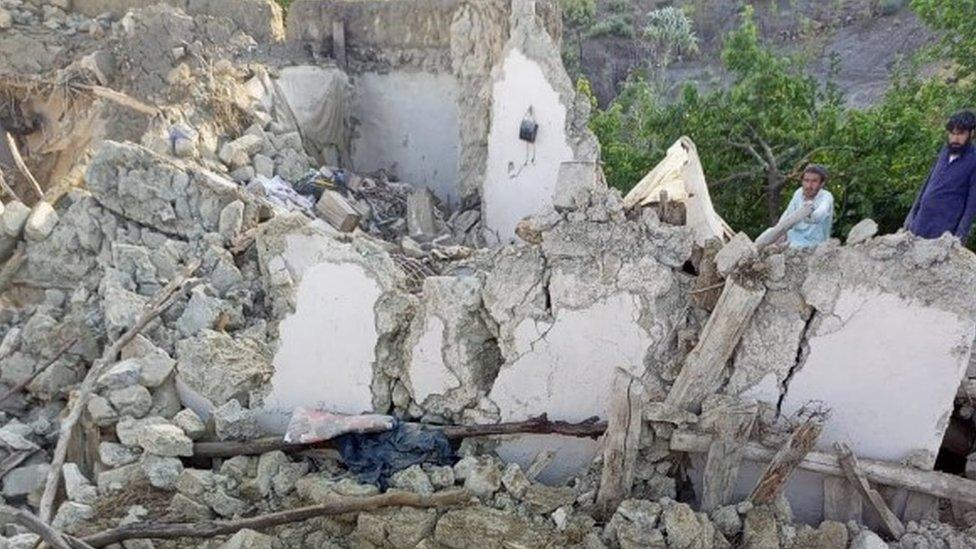
This building is almost completely destroyed
The United Nations Office for the Coordination of Humanitarian Affairs (UNOCHA) in Afghanistan is said to be "assessing the needs and responding in the aftermath of the earthquake"
A local doctor told the BBC that the most affected areas so far were in the Gayan and Barmal districts in Paktika, in the eastern part of the country.
Another local media site reported a whole village in Gayan had been destroyed.
The quake struck about 44km (27 miles) from the south-eastern city of Khost shortly after 01:30 local time (21:00 Tuesday GMT).
Seismologists who are earth scientists who study earthquakes put them at a depth of some 51km below the surface.
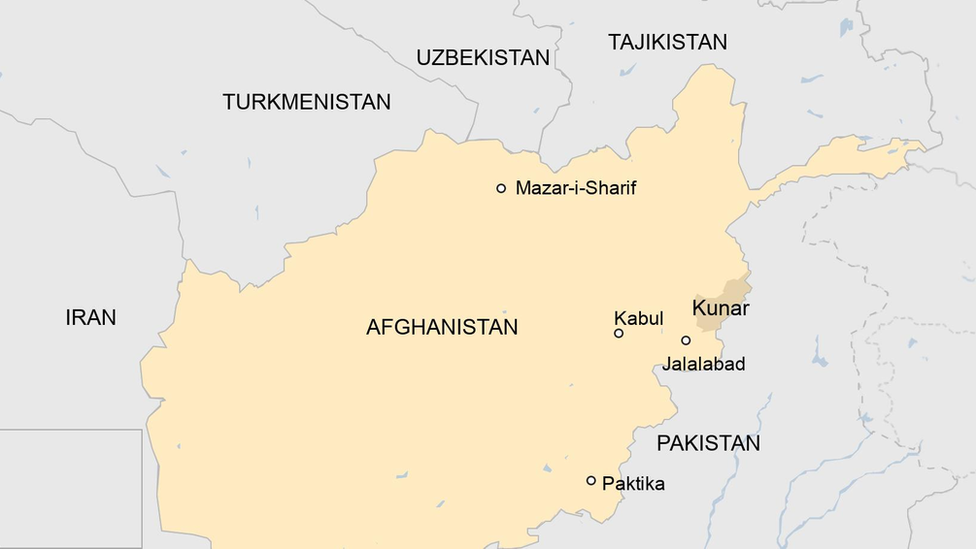
Paktika province is marked in the southeast corner of this map, near the border with Pakistan
Witnesses also reported feeling the quake in Afghanistan's capital, Kabul, 259 km (161 miles) away.
Tremors were felt across more than 500km of Afghanistan, India and Pakistan, as well as Pakistan's capital, Islamabad.
However, there have been no immediate reports of casualties outside out Afghanistan and the earthquake caused little damage in Pakistan.
What is being done to help people in Afghanistan?
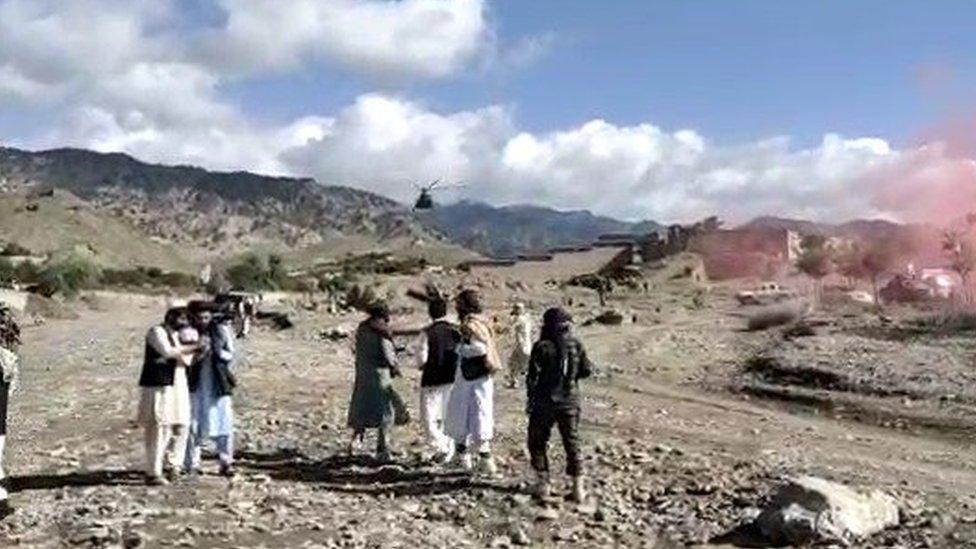
Rescuers have been arriving in Paktika province by helicopter
In remote areas, helicopters have been taking victims to hospitals.
Officials from the Taliban, the group who govern the country, have called for aid agencies to rush to the affected areas in the nation's east.
"Unfortunately, last night there was a severe earthquake in four districts of Paktika province, which killed and injured hundreds of our countrymen and destroyed dozens of houses," government spokesman Bilal Karimi tweeted.
"We urge all aid agencies to send teams to the area immediately to prevent further catastrophe."
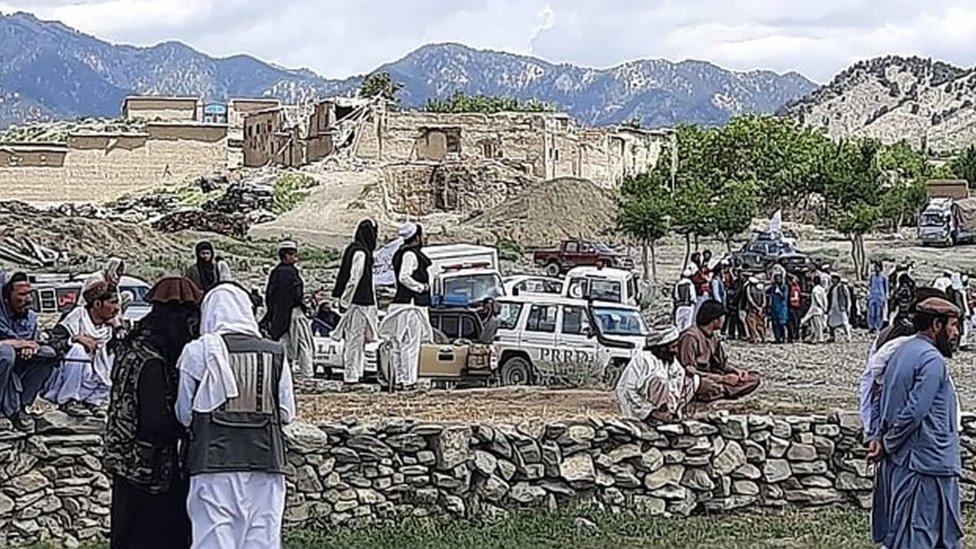
Afghanistan is prone to quakes, as it's located in a tectonically active region, over a number of fault lines including the Chaman fault, the Hari Rud fault, the Central Badakhshan fault and the Darvaz fault.
Earthquakes tend to cause significant damage in Afghanistan, where there are many rural areas where dwellings are unstable or poorly built.
Decades of conflict have made it difficult for the country to improve its protections against earthquakes and other natural disasters - despite efforts by aid agencies to reinforce some buildings over the years.
In the past 10 years, more than 7,000 people have been killed in earthquakes in the country, the UN's Office for the Coordination of Humanitarian Affairs reports.
- Published17 January 2022
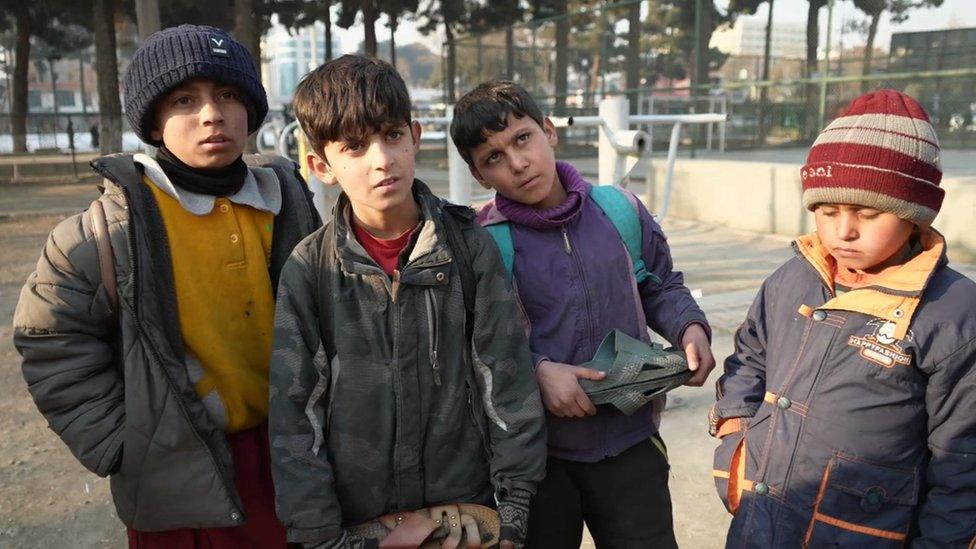
- Published17 August 2021
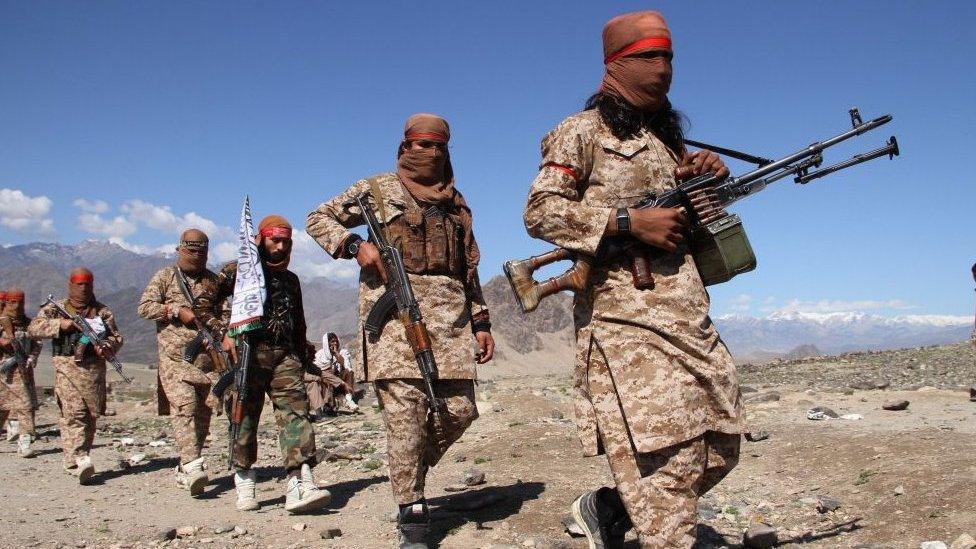
- Published18 August 2021
